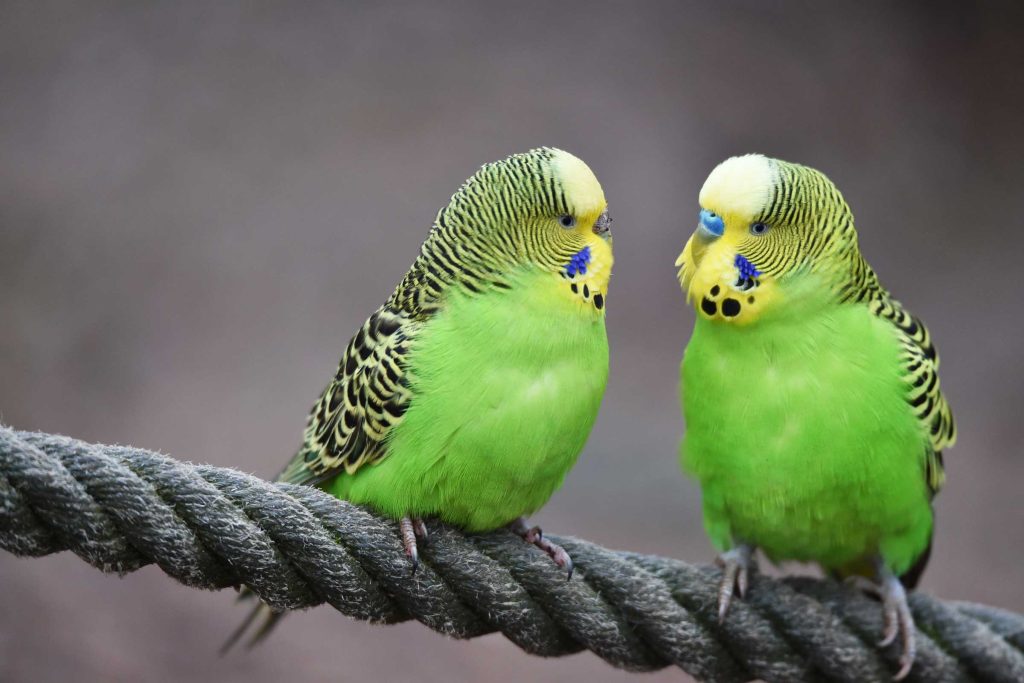
Parakeets, also known as budgies, are small, brightly colored parrots that are popular as pets worldwide. These birds are known for their playful and social nature as well as their ability to mimic words and phrases. They are easy to care for and have relatively low maintenance. However, owning a parakeet also means committing to their care for many years to come. One of the most important things to consider when owning a parakeet is its lifespan. In this article, we will take a deep dive into the lifespan of parakeets, what factors can affect how long they live, and how to ensure that your parakeet lives a long and healthy life.
On average, parakeets live for around 10 to 12 years in captivity. However, with proper care and attention, many parakeets can live for 15 years or longer.
The average lifespan of a wild parakeet is around 5 to 8 years. Wild parakeets face many challenges that captive parakeets do not, such as exposure to disease and predators, as well as a lack of access to proper food and medical care. As such, their lifespan tends to be shorter than that of captive parakeets.
In short, parakeets can live for a significant number of years, depending on the factors that affect their lifespan. Keep the above information in mind and always do your best to provide your parakeet with the best possible care to ensure a long and healthy life.
As a parakeet owner, it is important to understand the factors that can affect your bird's lifespan. Here are a few things to keep in mind:
A proper diet is essential for maintaining your parakeet's health and extending their lifespan. Make sure to feed your bird a variety of fresh fruits and vegetables, as well as a high-quality pellet or seed mix. Avoid foods that are high in fat, as they can contribute to health problems such as obesity. Also, always provide fresh water and consider providing a mineral block or cuttlebone for extra nutrients.
Regular checkups with an avian veterinarian are important to ensure that your parakeet is healthy and to catch any potential health issues early on. These checkups should include a physical examination, a blood test, and a fecal examination. It is also recommended to have your parakeet's beak and nails trimmed during these visits.
Parakeets are intelligent birds that need mental and physical stimulation to keep them healthy and happy. Provide your bird with plenty of toys to play with and change them out regularly to keep them interesting. You can also consider providing your parakeet with a play gym or a bird-safe playpen to encourage physical activity. Additionally, regular interaction with your parakeet, such as training and playing games, can provide mental stimulation.
Preventing common health problems is essential for extending your parakeet's lifespan. Keep your bird's living space clean and free of dust and mold, as these can contribute to respiratory problems. Also, make sure that your parakeet's living area is well-ventilated and free from drafts. Additionally, provide your parakeet with a balanced diet and regular veterinary checkups, as well as regular grooming, to prevent health issues from developing in the first place.
By providing your parakeet with proper diet and nutrition, regular veterinary checkups, mental and physical stimulation, and preventing common health problems, you can help ensure that your bird lives a long and healthy life. Remember that parakeets are social and intelligent birds that need your attention and care, so take the time to understand and provide them with everything they need for a good life.
In conclusion, parakeets, also known as budgies, are small, brightly colored parrots that are popular as pets worldwide. They are known for their playful and social nature as well as their ability to mimic words and phrases. The average lifespan of a parakeet in captivity is around 10 to 12 years, but with proper care and attention, many parakeets can live for 15 years or longer. Wild parakeets face many challenges that captive parakeets do not, so their lifespan tends to be shorter than that of captive parakeets.
To ensure that your parakeet lives a long and healthy life, it is important to provide them with proper diet and nutrition, regular veterinary checkups, mental and physical stimulation, and prevent common health problems. By keeping these key points in mind, you can help ensure that your parakeet lives a long and happy life.
For more resources and information on parakeet care, you can check out online forums, avian veterinarians, and organizations like the American Federation of Aviculture and the Avian Welfare Coalition. Additionally, there are several books and websites that offer detailed information on parakeet care and nutrition. With proper care and attention, you can help ensure that your parakeet lives a long and healthy life.

Pet's Better Life is part of Pristine Media, the media division of Pristine Group LLC.
Copyright 2019-2023 Pristine Group LLC. All images and media used in this website are provided by Adobe Stock. Every image is properly licensed for use on this website.